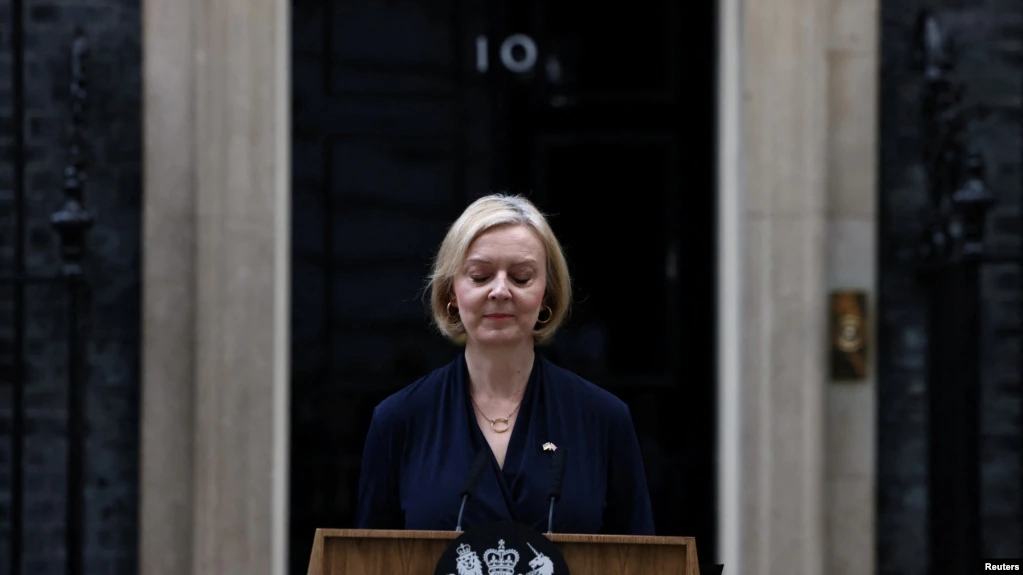

British Prime Minister Liz Truss resigned Thursday after just 44 days in office, prompted by an economic plan that sent financial markets into a tailspin, led to shake-ups in her Cabinet and divided her ruling Conservative Party.
She is the shortest-serving prime minister in British history.
In comments delivered at a podium in front of the prime minister’s residence at No. 10 Downing Street in London, Truss said that while she set out a vision for a “low tax, high growth economy,” she recognized she could not deliver the mandate on which she was elected by the Conservative Party.
Truss said she will serve until a replacement is selected. Graham Brady, chairman of the Conservative Party’s special parliamentary body, the 1922 Committee, told reporters that party leadership has indicated it could conduct a ballot and conclude an election as early as October 28, and possibly have a new prime minister in place by October 31.
The 1922 Committee is made up of Conservative Party members of parliament and has the power to force a prime minister from within the party to resign.
Analysts suggest former Treasury chief Rishi Sunak, who lost to Truss in the last leadership contest in August, is the leading candidate to replace her.
In an interview, opposition Labor Party leader Keir Starmer referred to the situation in the ruling Conservative — or Tory Party — as a “soap opera” and called for an urgent general election “so the public can make their minds up about this utter chaos.”
In a statement issued by the White House, U.S. President Joe Biden thanked Truss for her partnership “on a range of issues, including holding Russia accountable for its war against Ukraine.” He later reiterated that point to reporters as he left the White House and expressed confidence “the British are going to solve their problem.”
Truss succeeded Boris Johnson in September after he resigned following a series of scandals, including holding gatherings in violation of his government’s COVID-19 restrictions.